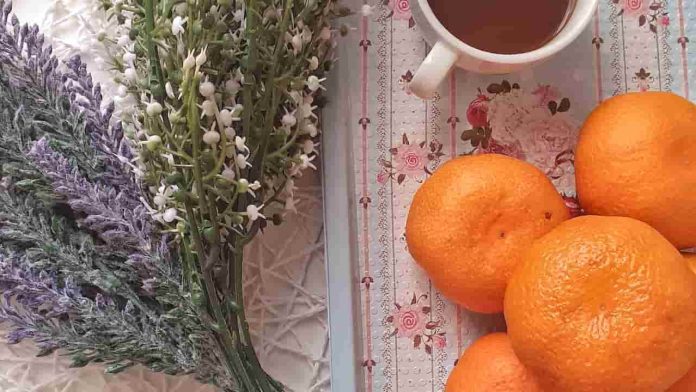Although the name Orange Pekoe Black Tea would suggest a particular variety of tea, it actually refers to a system of classifying Indian black teas based on the size and quality of their leaves. Many individuals who are new to the world of tea mistake Orange Pekoe tea for flavored black tea, whether it be because they have had a cup at a restaurant or have just heard the name before. In actuality, practically any loose-leaf black tea can be referred to as an Orange Pekoe, or OP grade.
What does “orange pekoe” mean?
Orange Pekoe isn’t a tea with an orange flavor or even one that brews up a copper hue that resembles an orange. Instead, the term “Orange Pekoe” designates a specific type of black tea. Black teas from India, Sri Lanka, and other Asian nations are usually referred to in the West as Orange Pekoe and other similar titles. However, this system is not generally used to grade Chinese black tea.
It’s uncertain where the term “Orange Pekoe” came from. The word may be a transcription of a Chinese expression that described the downy tips of tea plant buds. The Dutch House of Orange-Nassau and the Dutch East India Company, which contributed to the spread of tea throughout Europe, may have had something to do with the name’s etymology.
Various tea grades
The lowest grade of loose-leaf black tea is Orange pekoe. Even so, the Orange Pekoe classification still denotes high quality because it shows that the tea is made from entire loose leaves rather than the dust and pieces that are left behind after processing higher grades. The letters OP, which stand for orange pekoe tea, can also serve as a general term for various superior varieties of tea. For whole-leaf teas, these tea grades may include
Tea dust and fanning also have distinct grades based on their size and country of origin, in addition to these grades for whole and broken-leaf tea. The majority of commercially available teabags are made with fannings and dust, which are of inferior quality and have a considerably simpler flavor than loose-leaf tea.
What do all these letters actually imply, then? Generally speaking, Orange Pekoe, or OP, designates loose-leaf tea of medium-to-high quality. The addition of a B signifies that the leaves have been broken, producing a stronger cup of tea. An F stands for flowery, indicating that the tea is of a higher caliber and contains tea plant buds. F can also stand for best when it appears at the start of a tea grade, suggesting that the tea is of the highest caliber possible. G stands for golden and denotes a high proportion of buds, many of which have a golden appearance. T stands for tippy, which is another sign that the tea is made from the best tea plant tips and buds.
Orange pekoe tea advantages
Tea with the Orange Pekoe grade is loaded with health advantages, much like other black teas. Antioxidants included in black tea can lower levels of free radicals in the body, support cellular health, and protect against cancer and other degenerative diseases. Teas with the Orange Pekoe tea rating include a moderate level of caffeine as well as the amino acid l-thiamine, which can help with stress relief and anxiety reduction.
Teas we call “orange pekoe”
We don’t have any teas specifically called Orange Pekoe tea because the term refers to a grade of tea rather than a particular kind of tea. However, several of our Indian black teas, including Assam, Darjeeling, Ceylon, Nigeria, and Star of India, are rated as Orange Pekoe grade or higher.
Black Assam tea
Our Assam is a robust and flavorful Indian black tea that tastes well on its own or when served with milk and honey. These leaves are classified as Flowery Broken Orange Pekoe (FBOP) leaves. Assam has a powerful flavor profile, and a moderate quantity of caffeine, and is frequently included in breakfast mixes like Irish Breakfast.
Darjeeling Black Tea every day
A second flush black tea from the Indian Darjeeling region is called Our Daily Darjeeling. FTGFOP1 (Finest Tippy Golden Flowery Orange Pekoe One) is the grade given to the leaves. Teas from Darjeeling, which are grown in the foothills of the Himalayan Mountains, have the moniker “the champagne of teas” due to their sparkling flavor and exceptional quality. In comparison to other Indian black teas, Darjeeling teas are often a little lighter and have a moderate quantity of caffeine.
First Flush Monteviot Darjeeling Black Tea
The very first buds and tips that emerge from the tea plant in the spring are used to make our Monteviot First Flush Darjeeling. This tea is grown at a height of 5,100 feet on the Monteviot Estate. The tea is rated FTGFOP1 (Finest Tippy Golden Flowery Orange Pekoe), which is the highest grade. Since this tea is a first flush, we only have a small supply available in the late spring and early summer before we run out and have to wait until next year!
Black tea from Ceylon
Sri Lanka, which was formerly known as Ceylon when it was a British colony, is where our Ceylon tea is from. Black teas from India and Sri Lanka are frequently graded using the same methodology. This tea is a good example of an Orange Pekoe tea with a modest quantity of caffeine and a hint of spice. It is rich and aromatic.
Black Nigerian tea
Our Nilgiri tea comes from the southwest Indian area of Nilgiri and is a full-bodied, rich tea. Niligiri teas are becoming more and more popular, even if Assam and Darjeeling may be better known for their well-known Indian black teas. This powerful tea can be consumed alone or with milk and honey, and it has a moderate dose of caffeine.
Indian Black Tea Star
Our Star of India tea can be the perfect choice for you if you enjoy Indian black teas but are seeking something different. Indian black tea Star of India is a wonderful, well-balanced combination of Assam, Darjeeling, and Nilgiri teas.
Orange Pekoe teas often have a powerful taste, a full body, and a moderate quantity of caffeine because this classification system is primarily used to identify Indian and Sri Lankan black teas. We have a variety of selections available, whether you’ve tried Orange Pekoe tea previously or are just curious about other tea grades.

